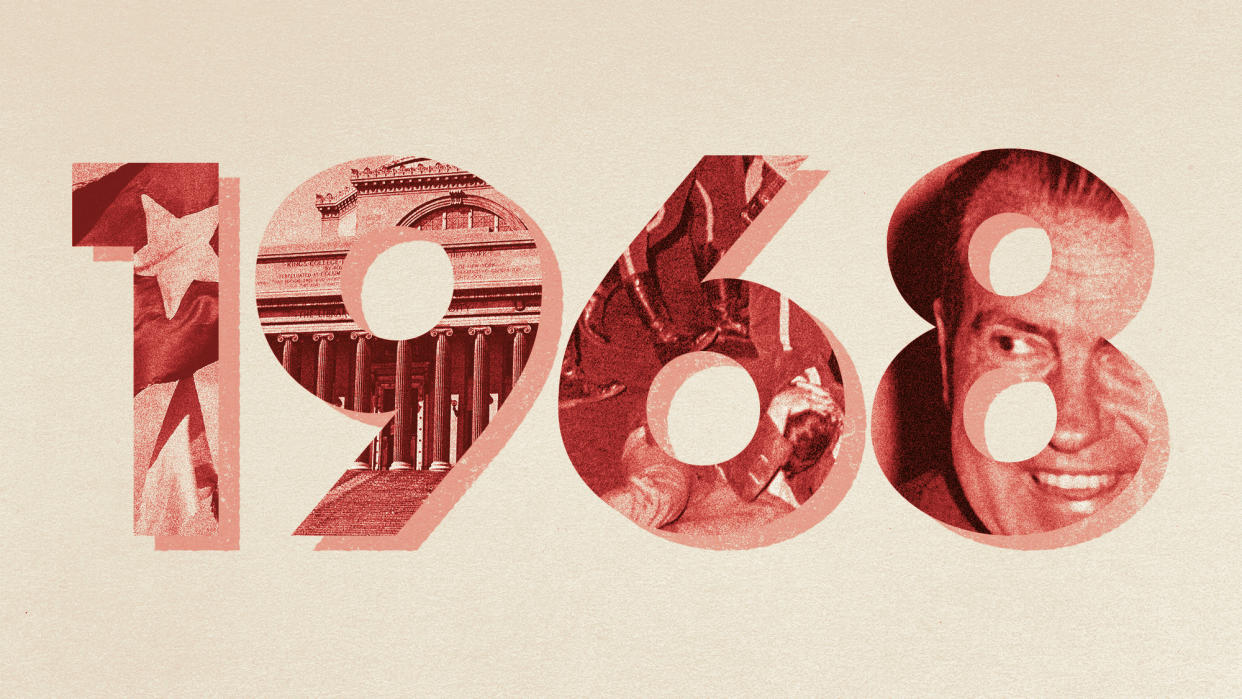Is it 1968 all over again?

Does history repeat itself? It seems that way to some observers of the campus protests against the Israel-Hamas war. "The turmoil we're seeing brings back memories of the widespread student protests of 1968," Princeton University's Julian Zelizer said at CNN. That crucial, chaotic year saw roiling protests against the Vietnam War — and ended with Democrats losing the presidency to Richard Nixon's "law and order" campaign. President Joe Biden "must surely be worried now that history will repeat itself."
The '68 turmoil wasn't contained to campus quads, though. Thousands of protesters famously descended on the Democratic National Convention in Chicago, where demonstrators and police battled in the streets. Chicago is where this year's DNC will be held. "We'll be marching with or without permits," said one pro-Palestinian organizer. The historical echoes are making some Democrats uncomfortable. "This is all playing out again," Charles Blow said at The New York Times.
'Era of Republican dominance'
If we're experiencing a redux of 1968, that could spell long-term trouble for Democrats. "Nixon's victory marked the beginning of an era of Republican dominance of the presidency," William Kristol and Andrew Egger said at The Bulwark. Jimmy Carter was the only Democrat to win a term between 1968 and Bill Clinton's victory in 1992. That should serve as a warning to Biden's party: "A Republican victory in November could also be a historic inflection point."
"Here we go again," Charles Sykes said at The Atlantic. Sykes attended the 1968 Democratic convention as a teen accompanying his father, a delegate. "I had a front-row seat to a political party tearing itself apart." This summer's convention probably won't have the "Sturm und Drang of 1968's violent fiasco," mostly because police have better learned how to handle convention security. "But the parallels between 2024 and 1968 are ominous."
Protests can produce an electoral backlash. "The lesson of 1968 is that while the fireworks are on the left, the votes are on the right," James Traub said at The Wall Street Journal. Biden's best path is to work out a solution in Gaza before time runs out his reelection hopes. "He needs to make peace — in Israel, at home — so that the rest of the country can hear his message."
Hopes for a peace deal
Not everybody buys the parallels. "It's not 1968 to Joe Biden," Gabriel Debenedetti said in New York. The president believes that this time around, protesters "are not representative of the broader youth population" and that the campus tents will come down as summer vacation sets in. Still, some of the president's allies are also hoping for a ceasefire in Gaza. "If a peace deal gets brokered," said one former adviser, "then Biden could enjoy a well-deserved bump."
"Protests of any kind, even those most justified, produce a sense of unease among the public," Jeff Greenfield said in Politico. Biden has condemned "the more violent and disruptive of the current campus protests." The question now is whether that will be enough to save his presidency. "It would be folly to draw exact parallels between today's unrest and those of 60 years ago," Greenfield said. "But some do resonate."

